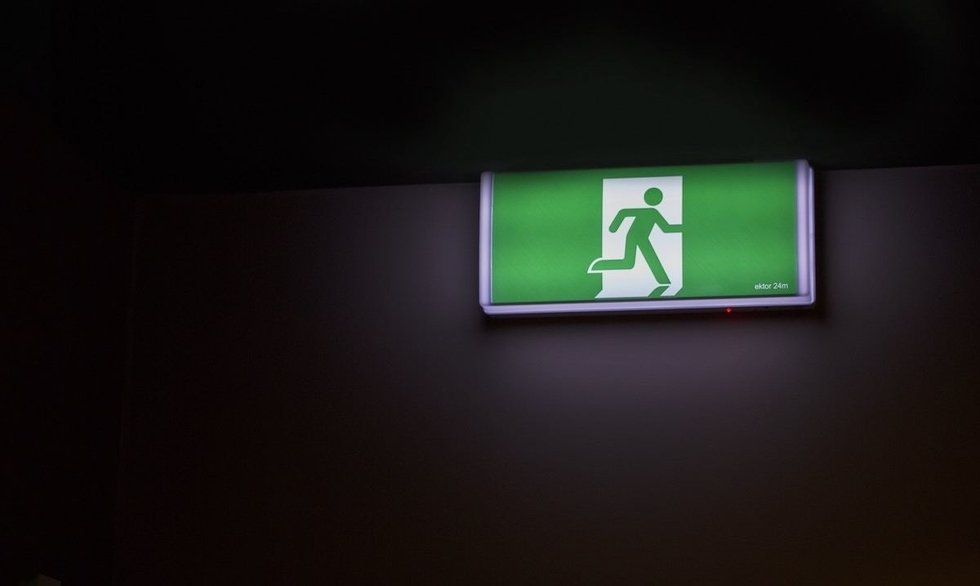What to do when a job interview goes wrong
Apr 01, 2019
3 mins

This is the bane of every job seeker’s life! For whatever reason, everyone has had a job interview that’s gone badly, be it due to an unpleasant recruiter, a serious case of stage fright, an answer that doesn’t wash… There can be many reasons an interview doesn’t go well, but none of them necessarily calls your professional abilities into question. We’ve put together some tips to help you take control of this dreaded moment (and the aftermath) and put all the odds back in your favor.
How to react when an interview starts deteriorating
Don’t stress, keep a positive attitude, and don’t lose your cool. If you are prone to stage fright, before you go to the interview take a few moments to breathe deeply and ground yourself. For example, do the 4-7-8 breathing technique: close your mouth and breathe in for 4 seconds; hold your breath for 7 seconds, then exhale slowly for 8 seconds; repeat this at least four times to regain your composure.
Did you notice your interviewer mark one of your responses? Anyone can make a mess of an answer or put their foot in it. Control your breathing, regain focus, and rephrase your idea instead of acting as if nothing happened: a slip-up that you are able to come back from will be quickly forgotten.
Does the person in front of you seem more preoccupied with their emails than what you’re saying? Don’t freeze up. Try to get their attention by saying, “Mr. X, I’d also like to add that… ” Energize your presentation and ask them direct, relevant questions about the position.
The end of the interview can be a good chance to score some points. Don’t hesitate to ask if you were able to answer the questions satisfactorily or if your application is of interest to the recruiter. This will be a key opportunity to show your motivation and skills.
Take stock instead of feeling guilty!
There’s no point in chastising yourself if it didn’t go as well as you were hoping. Everyone has bad days, and if you weren’t able to show off the full range of your skills, or if you didn’t manage to sell yourself as much as you could have, don’t make a drama out of it. Take a step back and go over what happened in your interview to keep it stored in your memory. This way you can analyze your weak points and take stock. Be as frank as possible with yourself—this will ensure you don’t repeat the same mistakes.
To send a follow-up email or not?
After an interview, it’s a good idea to send an email for a quick debrief and to say thank you. Send this as soon as possible and address the below points:
Don’t dwell on what went wrong
Add some additional information
Show that you have thought about the discussion and put forward some new ideas for the company.
Attach documents relating to your professional skills—work, projects, letters of recommendation
If you weren’t on form because of illness, family problems, or anything else, include information about that, too! This follow-up email will once again showcase your motivation to the recruiter and could actually make the difference. Indeed, this approach shows maturity and the ability to challenge yourself in a proactive way.
However, if the issue is due to a bad feeling or an unpleasant attitude from the interviewer, it might be better to think twice. An email might help you, but do you really want to work in a bad atmosphere?
You didn’t get the job
Despite all your efforts, you haven’t been selected. Remain courteous with your contact person and ask them for some feedback about your interview and application. If the recruiter replies, this will help you prepare better for your next interview.
If the situation recurs, you might want to seek coaching from a human resources professional: you can master the recruitment stage through interview simulations that are filmed and then broken down and interpreted.
Translated by Matthew Docherty
Photo: Welcome to the Jungle
Follow Welcome to the Jungle on Facebook, LinkedIn, and Instagram, and subscribe to our newsletter to get our latest articles every day!

More inspiration: Ace your job interview

Why are you leaving your job? Here's how to nail the answer
Caught off guard by 'Why are you leaving your job?' Here's how to flip this tricky question into a spotlight on your goals and potential.
Dec 24, 2024

Standing out in an interview: Creative responses to common questions
Answering common interviews with common responses isn't going to get you far in today's job market. Here's how to truly stand out!
Nov 26, 2024

The Pratfall Effect: Can screwing up in a job interview make you more likable?
Mistakes you make in a job interview could actually work to your advantage ...
Oct 14, 2024

How to bring up your long-term career goals in an interview
Be honest but strategic. The key is aligning your goals with the role while showing flexibility and ambition. Avoid faking it!
Sep 24, 2024

Is honesty the key to discussing your weaknesses?
Are your weaknesses holding you back in an interview? A bit of honesty can flip the script and make your flaws work in your favor.
Aug 21, 2024
The newsletter that does the job
Want to keep up with the latest articles? Twice a week you can receive stories, jobs, and tips in your inbox.

Looking for your next job?
Over 200,000 people have found a job with Welcome to the Jungle.
Explore jobs